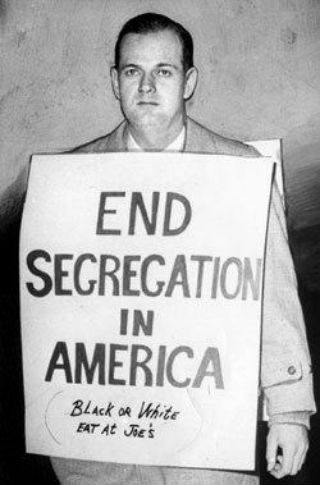
My journey to cultural discovery.
My journey as a minority is unusual because I really didn’t know my true heritage until adulthood. All my life I believed my father was born in Barcelona, Spain.
At the age of fourteen, after a lifetime of ambiguity, I learned that my father was actually Puerto Rican. It wouldn’t seem like such a stretch until you start to understand the reasoning behind it all.
You see, my father and his sisters were victims of racial prejudice from other members of their family. Some of the details are vague or even unknown, but I will do my best to relate the information as best I can.
One of the reasons my father lied is for appearances. Whether he was right or not is debatable, I think, but he lied in part because he felt Puerto Ricans were looked down upon. He believed that there was a social stigma to being Caribbean Hispanic and that European Spaniards have a higher social standing.
We know for certain that there was a lot of prejudice within the family. My father and his sisters were treated as “less than” because of their dark colouring.
To what extent did this prejudice go? We don’t know and most likely will never know. It’s not unusual, though, for this to exist. It’s fairly common to hear stories of darker Hispanics facing prejudice and bigotry from the fairer Hispanics.
As I’ve gotten older, I’ve become more curious about my heritage. I’ve done some research; I’ve also befriended some fellow Boricuas and have learned quite a bit from them.
According to what I could find on the internet, we have some not-so-distant ancestors that were either black or mixed. I also have Taíno blood, which is the native Arawak tribe on the island. There may be more.
Interestingly enough, most people that meet me have no idea that my ethnicity is so diverse. My skin is pale, my hair is black, my lips are full and so is my figure.
Despite having full lips and curves, I am typically seen as white (and occasionally I am mistaken for Asian). Knowing what I know now, I can look back at certain events in my life and I can see that I was given some “preferential treatment,” if you will.
I was treated well because I was assumed to be Caucasian. I am grateful for having had the opportunities that I have had, but I can’t help but wonder how different my life would be if I was to have more melanin in my skin.
This really has been a journey for me. Akin to coming out, this has been as much about self-discovery as it has been ancestral research. As I learn about what makes up my DNA, I see my own evolution.
I have grown and changed and improved, all by learning about my heritage. As I have gotten in touch with these different cultures, I have gained some peace. I feel more comfortable in my own skin.
I also follow certain traditions or beliefs that enrich my life and my soul. I suddenly understand many of the things that I have liked or felt connected to. I’ve learned more about who I am.
I’ve also learned about humanity: the truth that resides in each of us no matter the colour of our skin.

